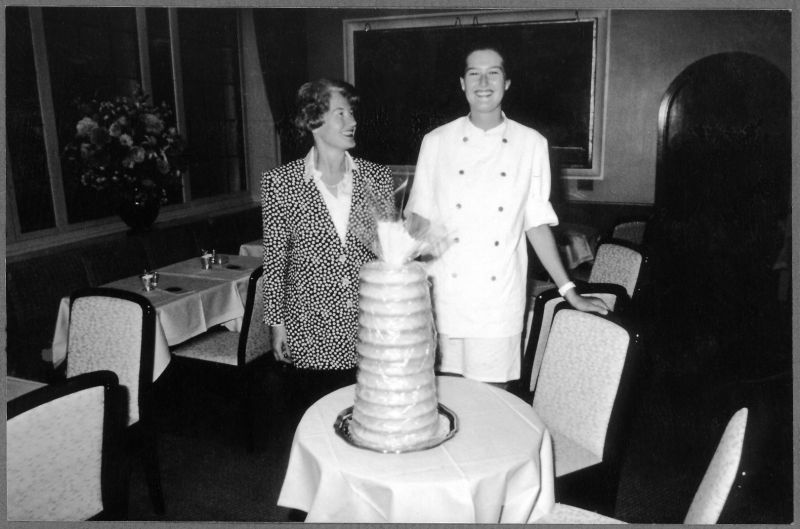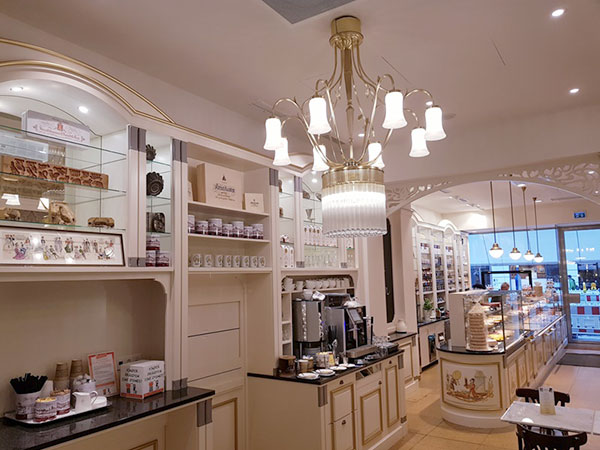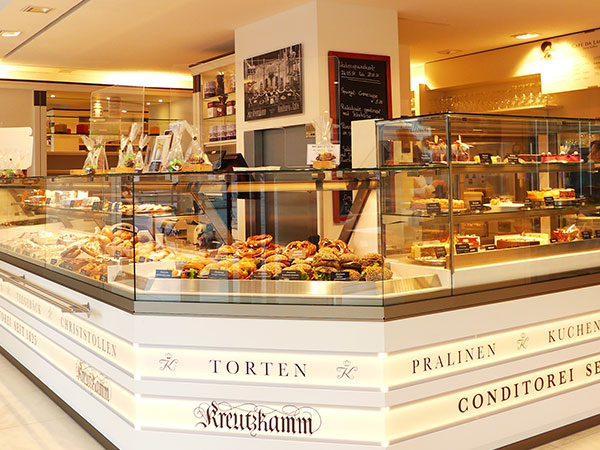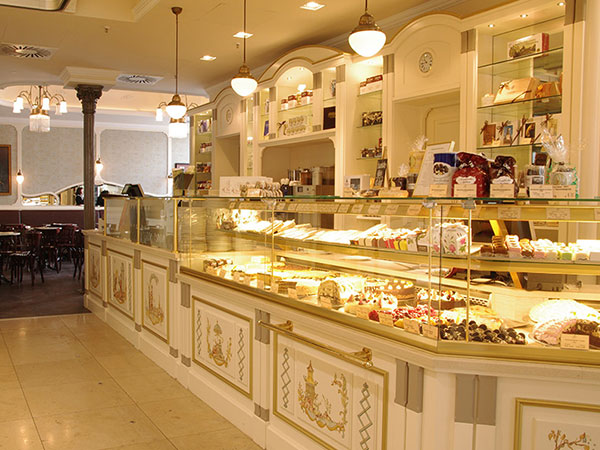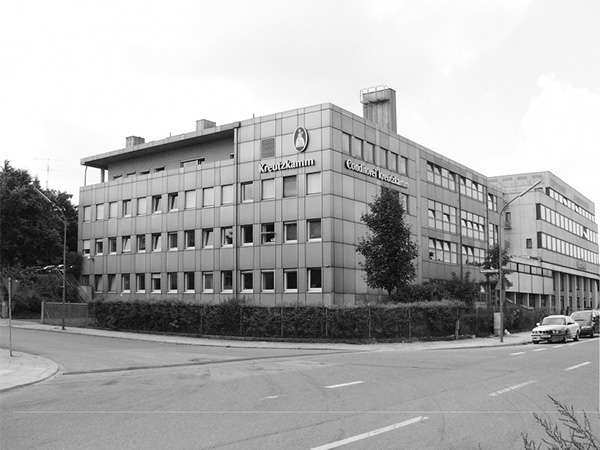History of the house "Kreutzkamm"
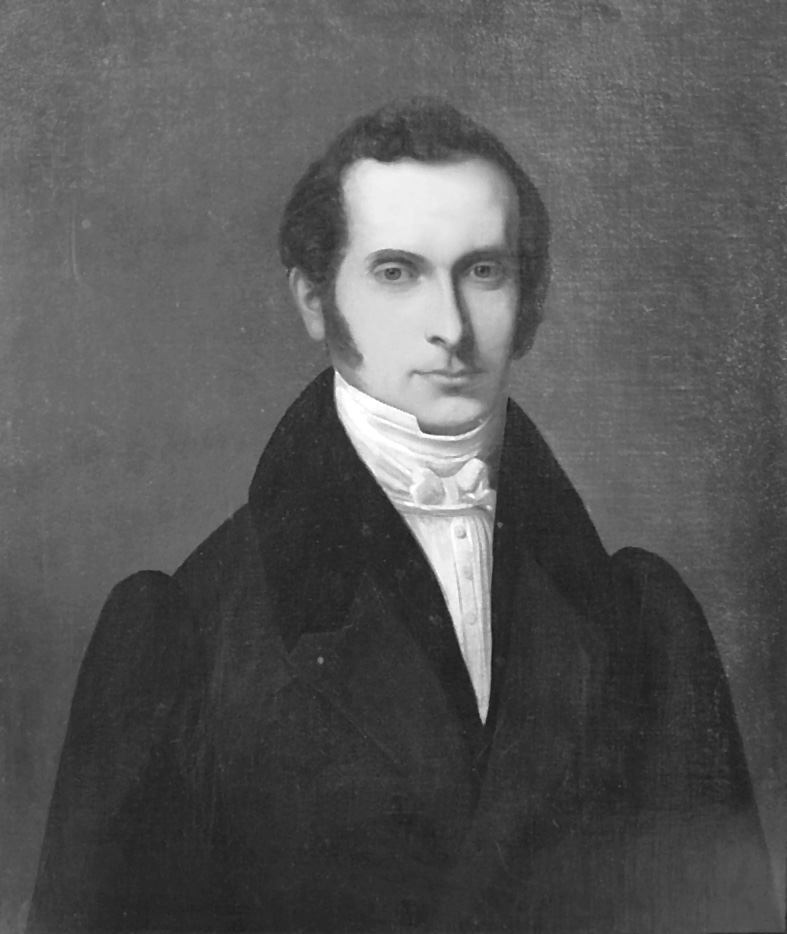 It all began in Dresden in 1825. On the 16th of March 1825, Jeremias Kreutzkamm of Quedlinburg, then only 25 years old, applied in Dresden to be granted the citizenship rights, and at the same time asked for a licence to operate a confectionery shop. Authorities took their time in responding. Half a year later, the new Dresden citizen announced the opening of his business in the paper "Dresdner Anzeiger". In due time for Christmas, he announced on October 14:
It all began in Dresden in 1825. On the 16th of March 1825, Jeremias Kreutzkamm of Quedlinburg, then only 25 years old, applied in Dresden to be granted the citizenship rights, and at the same time asked for a licence to operate a confectionery shop. Authorities took their time in responding. Half a year later, the new Dresden citizen announced the opening of his business in the paper "Dresdner Anzeiger". In due time for Christmas, he announced on October 14:
"To the highest gentry and much honoured public, I, herewith, with reverence, announce that I can deliver for the approaching Christmas season tasteful confectionery, finely suited to decorate Christmas trees with, as well as all sorts of finest French chocolates at lowest prices, and that I can complete all orders of that kind to your best satisfaction."
J. H. Kreutzkamm, Confectioner
Moritzstraße 751
Soon the "dynamic yuppie" as we would call him today also leased a small restaurant. He also wanted to open a café, but permission was withheld by the Dresden City Council who didn't believe there was demand for such a café. When Jeremias Kreutzkamm died, he was only 50 years old, and had lived a hard working live with wonderful achievements, but also with some hard drawbacks. His 24-year old son Heinrich Julius continued the confectionery shop and also opened the café which was to become a Dresden institution.
In 1867, he was awarded the title of Court supplier SKH of His Majesty, the Crown Prince Albert and the Prince Georg, Duke of Saxonia, for his excellent confectionery. Soon after, he was also awarded the title of "Royal court confectioner" by His Majesty King Albert.
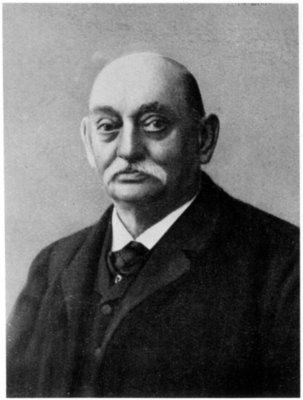 For forty years, Heinrich Julius managed the company with vigour and with a lucky hand. He also succeeded in acquiring the house that was to become the parental company of the Kreutzkamm dynasty at the Old Market in Dresden. At the end of the year 1890, he retired into a well-earned private life. His successor was his son Max.
For forty years, Heinrich Julius managed the company with vigour and with a lucky hand. He also succeeded in acquiring the house that was to become the parental company of the Kreutzkamm dynasty at the Old Market in Dresden. At the end of the year 1890, he retired into a well-earned private life. His successor was his son Max.
Max Kreutzkamm expanded and modernised the confectionery shop and the produciton and sales premisies. At home and abroad, the company acquired an excellent reputation, thanks in particular to the quality of the "Dresden Christmas cakes" that were shipped abroad already at the turn of the century. For the USA and the tropical countries, they were packed in boxes made of sheeting, and soldered shut by a plumber every night, before they were placed into another wooden crate.
In 1926, Max Kreutzkamm died and his son Fritz continued the business. Times were poor: Inflation, unemployment, … the business capacities are no longer fully exploited. Fritz Kreutzkamm had the saving idea: delivery of his produce to delikatessen stores. What was conceived as an emergency solution soon became a success story.Yet the II. World War put a sudden stop to it. The bombing of February 13, 1945 laid Dresden down in ruins. Hence the livelong achievements of four generations were destroyed within ninety minutes only.
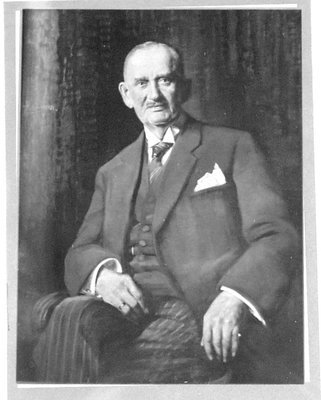 After the tragedy of Dresden, which at then was put under Russian administration, it was not even possible to think about a new beginning in Dresden. After many stations as a fledging and prisoner-of-war, Fritz Kreutzkamm was able to find a job at the US-military government in Bavaria.
After the tragedy of Dresden, which at then was put under Russian administration, it was not even possible to think about a new beginning in Dresden. After many stations as a fledging and prisoner-of-war, Fritz Kreutzkamm was able to find a job at the US-military government in Bavaria.
On September 15, 1950, he started again from the scratch in Munich. After the long years of want and need, the demand for sweets and confectionery was large. Former delikatessen customers began to re-order, and many Customers form Dresden came to buy their Christmas cakes personally. The path went upwards - if not without drawbacks. In February 1951, a small cafe , the "Gugelhupf" was opened in the Burgstaße. In October 1954, Fritz Kreutzkamm took over the popular, old Munich café "Eyhrich" in the Maffeistraße, which became the new parental company of the Kreutzkamm family. In 1961, he also took over the University Café Monopteros at the English Gardens, which soon became a famous meeting point for students and promenaders.
Soon, the premises were no longer up to the requirements, and so a new building was constructed at the periphery of Munich. In 1960, additional rooms in the Maffeistraße were taken over. The family gave up the Café Monopteros, the production premises were expanded, and a new shop was opened in the Maxburgstraße.
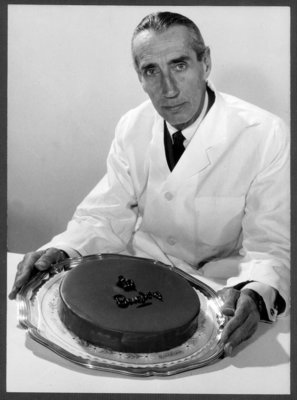 After the death of Fritz Kreutzkamm in 1981, his wife Friederike and his daughter Elisabeth continue his business. After the fall of the German wall, they again opened a café in Dresden at the Old Market.
After the death of Fritz Kreutzkamm in 1981, his wife Friederike and his daughter Elisabeth continue his business. After the fall of the German wall, they again opened a café in Dresden at the Old Market.
In 1993, parts of the former Dresden bakery combinate were acquired, so that today, we produce in Munich and in Dresden under the name of "Dresden Backhaus", and mail our specialities to places all over the world.
Awareness of traditions and far-sighted management, solid craft skills and the non-compromising adherence to highest quality standards founded the world-wide reputation of the name Kreutzkamm.
About our favorite products
Kreutzkamm Christstollen
Christstollen (fruit loaf) is a fancy cake with a tradition which goes back to the 15th century. The recipe has found friends all over the world. Every single one of these fine cakes is made by hand using traditional baking skills. Ancient and proven recipes combined with carefully selected ingredients guarantee superb quality and outstanding flavor.
Baumkuchen (Tree cake) and Baumkuchenspitzen (Tree cake bits)
Baumkuchen is a very delicious sponge-cake, hand-made with many eggs, butter, almonds and a secret mixture of spices. It is baked layer by layer on wooden cylinders in front of an open fire. Covered with semi sweet chocolate or vanilla glaze it gets its special character and delicious taste.
There is an old saying about Baumkuchen: „King of the cakes and cake of the Kings“.
Here you can take a look at our (german) Family Cronicle, which we published on the occasion of our 175th anniversary in 2000.


